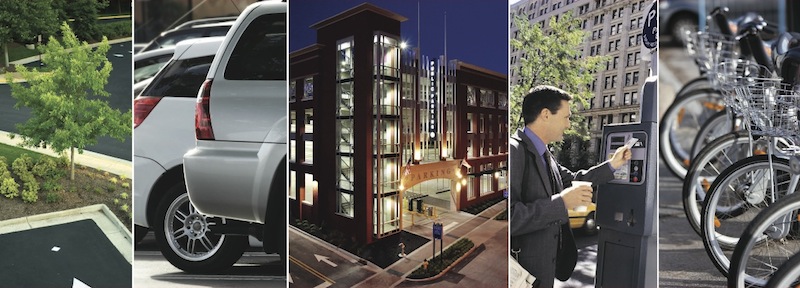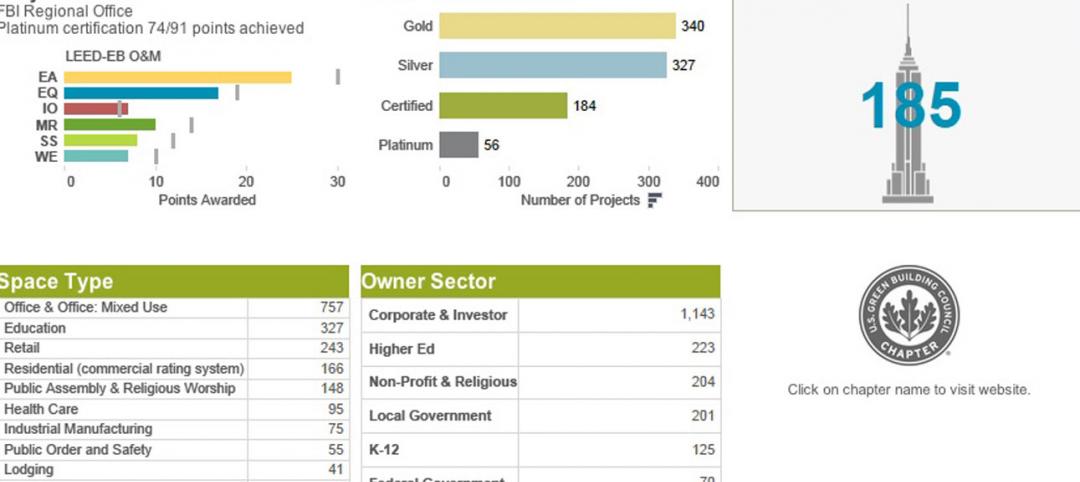According to the results of a just-released survey, the country is undergoing a parking revolution as the industry embraces a variety of new technologies that make it easier for people to find and pay for parking, and for parking authorities to better manage it.
The 2013 Emerging Trends in Parking survey was conducted among members of the International Parking Institute (IPI) and released at the 2013 IPI Conference & Expo, May 19-22. Cities leading in parking innovation include San Francisco; Seattle; New York; Los Angeles; Washington, D.C.; Portland, Ore; Miami; Houston; Boston; Denver; Pittsburgh; and Tampa. Dozens of other cities were identified.
Survey highlights include:
1. Smartphones: Solution to the "space race?"
Topping the list of trends in the $30 billion parking industry is the "move toward innovative technologies to improve parking access control and payment automation," cited by 59 percent of respondents. Another top trend is "real-time communication of pricing and availability to mobile/smart phones" (52 percent).
Both trends are evident in San Francisco's federally-funded SFpark pilot project, which supplies real-time information on the availability and cost of on- and off-street parking, drastically reducing driver circling while hunting for open spaces, congestion, and double-parking.
According to San Francisco County Transportation Authority Park Manager Jay Primus, the city also may be the first in the U.S. to quantify the number of available parking spaces in all public lots, garages, and city blocks. Seattle's new electronic parking guidance system uses dynamic real-time message signs and web information to direct people to available off-street parking at six downtown garages.
2. Payment options continue to expand
The second leading trend is the demand for electronic (cashless) payment, with cities such as Washington, D.C., Pittsburgh, Houston, and Miami, among others, incorporating pay-by-phone programs. Acclaimed as the world's most successful of its type, the D.C. program has earned 550,000 customers and accounts for 40 percent of the city's parking revenues.
About 80 percent of the seven million transactions to date employ smart phones, with payment options that include credit cards, online and mobile money management solutions, and PayPal. Miami and Pittsburgh are among the pioneering cities in incorporating license-plate recognition technology as another means of quick and efficient payment.
3. Taking a smarter business approach
The trends toward "demand for greater parking revenue" (38 percent) and "more public-private partnerships" (24 percent) are demonstrated by Miami's innovative public-private partnerships. Similar programs have been launched in cities such as Houston, where consultants posed the question: "What would a parking program look like if it was managed by Nordstrom?" prompting a focus on parking as an engine for municipal economic development.
4. Green solutions sprouting up
Other notable trends include "collaboration between parking, transportation, and decision makers" (43 percent), "need for improved customer service," (31 percent), and "demand for green/sustainable solutions" (30 percent). Among the technology considered to have the greatest potential in improving sustainability are "guidance systems to enable drivers to find parking faster (and reduce carbon emissions)" (57 percent); "energy-efficient lighting" (55 percent); "encouraging alternative travel" by providing bike storage, car/bike share, access to transit, etc. (42 percent); "accommodating electric-vehicle charging stations: (21 percent), :renewable-energy installations such as solar panels and wind power"; and "innovative water and storm water management systems" (11 percent).
For example, the City of Tampa cut its energy costs in half by upgrading lighting in its parking facilities, joining Miami, Denver, and other cities in offering citywide electric-vehicle charging stations. Miami was among the first U.S. city to partner with a car-share program, which has since taken root in a number of other cities across the country.
Related Stories
| Jun 12, 2014
Austrian university develops 'inflatable' concrete dome method
Constructing a concrete dome is a costly process, but this may change soon. A team from the Vienna University of Technology has developed a method that allows concrete domes to form with the use of air and steel cables instead of expensive, timber supporting structures.
| Jun 2, 2014
Parking structures group launches LEED-type program for parking garages
The Green Parking Council, an affiliate of the International Parking Institute, has launched the Green Garage Certification program, the parking industry equivalent of LEED certification.
| May 29, 2014
7 cost-effective ways to make U.S. infrastructure more resilient
Moving critical elements to higher ground and designing for longer lifespans are just some of the ways cities and governments can make infrastructure more resilient to natural disasters and climate change, writes Richard Cavallaro, President of Skanska USA Civil.
| May 23, 2014
Top interior design trends: Gensler, HOK, FXFOWLE, Mancini Duffy weigh in
Tech-friendly furniture, “live walls,” sit-stand desks, and circadian lighting are among the emerging trends identified by leading interior designers.
| May 20, 2014
Kinetic Architecture: New book explores innovations in active façades
The book, co-authored by Arup's Russell Fortmeyer, illustrates the various ways architects, consultants, and engineers approach energy and comfort by manipulating air, water, and light through the layers of passive and active building envelope systems.
| May 19, 2014
What can architects learn from nature’s 3.8 billion years of experience?
In a new report, HOK and Biomimicry 3.8 partnered to study how lessons from the temperate broadleaf forest biome, which houses many of the world’s largest population centers, can inform the design of the built environment.
| May 13, 2014
19 industry groups team to promote resilient planning and building materials
The industry associations, with more than 700,000 members generating almost $1 trillion in GDP, have issued a joint statement on resilience, pushing design and building solutions for disaster mitigation.
| May 11, 2014
Final call for entries: 2014 Giants 300 survey
BD+C's 2014 Giants 300 survey forms are due Wednesday, May 21. Survey results will be published in our July 2014 issue. The annual Giants 300 Report ranks the top AEC firms in commercial construction, by revenue.
| Apr 29, 2014
USGBC launches real-time green building data dashboard
The online data visualization resource highlights green building data for each state and Washington, D.C.
| Apr 22, 2014
Bright and bustling: Grimshaw reveals plans for the Istanbul Grand Airport [slideshow]
In partnership with the Nordic Office of Architecture and Haptic Architects, Grimshaw Architects has revealed its plans for the terminal of what will be one of the world's busiest airports. The terminal is expected to serve 150 million passengers per year.


















